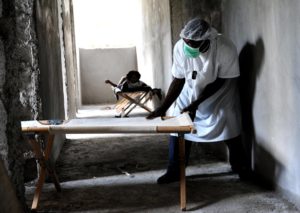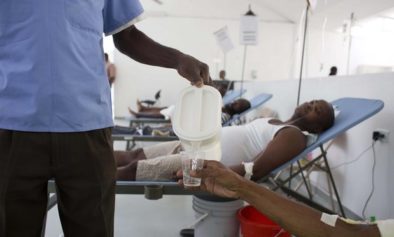
Groups working with Haitian victims have greeted the apparent shift in the UN’s position as a potential breakthrough in a crisis that has devastated one of the poorest countries in the world and sapped the credibility of the very organization that was supposed to be helping it.
The deadly bacterium was imported into the country in 2010 by infected UN peacekeepers who dumped contaminated sewerage directly into local rivers. Latest studies suggest that at least 30,000 people have died, with more than two million survivors of the illness.
UN’s own experts chastise Ban Ki-moon over handling of Haiti cholera outbreak
The UN’s olive branch comes in a letter from its second-in-command, Jan Eliasson, in response to sharp criticisms leveled against the UN leadership by the organization’s own human rights experts. Five UN special rapporteurs on human rights wrote to secretary-general Ban Ki-moon in March warning him that his dogged refusal to accept the UN’s role in bringing cholera to Haiti was undermining the world body’s reputation.
In his letter, Eliasson replies: “The secretary-general and I are fully committed to ensuring that the organization fulfills its human rights obligations.” Though he does not mention the vexed question of responsibility for the catastrophe, he does say he is willing to “engage further” in discussing ways in which the UN could do more to “assist the victims of cholera and their communities”.
Read more here.
